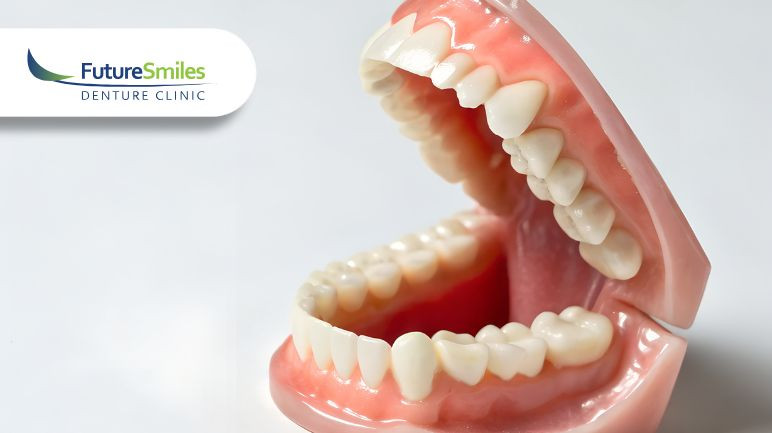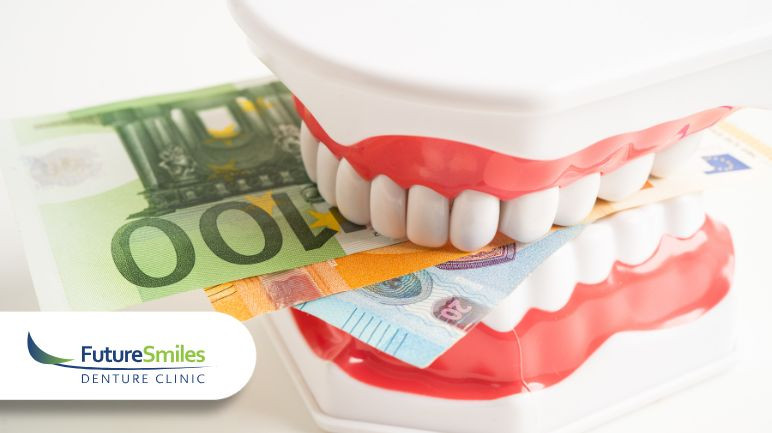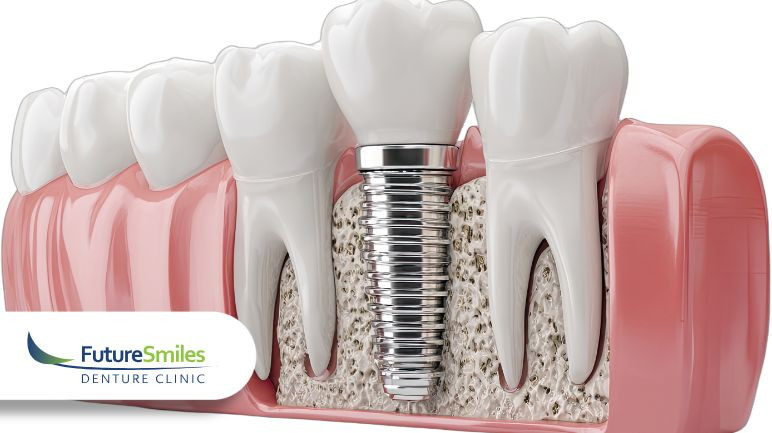At Future Smiles Denture Clinic, we understand the importance of a well-fitting denture. Ill-fitting dentures can lead to discomfort, difficulty in eating, and even impact your self-esteem. If you’ve been experiencing issues with your dentures, it might be time for a reline. Here are five signs that indicate it's time to visit us for a denture reline.
1. Sore Spots and Discomfort
One of the most common signs that your dentures need a reline is persistent sore spots and discomfort. When dentures no longer fit properly, they can rub against your gums, causing irritation and even painful sores. If you find yourself reaching for over-the-counter remedies to soothe sore spots more often, it's a clear indication that your dentures are not fitting as they should. A reline can adjust the fit of your dentures, ensuring that they sit comfortably and securely in your mouth, reducing the risk of irritation.
2. Difficulty Chewing and Speaking
Properly fitting dentures should allow you to chew your food and speak clearly without any issues. If you’re struggling to chew certain foods or notice that your speech is slurred or unclear, it might be due to ill-fitting dentures. Changes in the fit can affect the stability of your dentures, making everyday tasks like eating and talking challenging. A denture reline can restore the stability and functionality of your dentures, allowing you to enjoy your meals and converse with confidence.
3. Loose or Slipping Dentures
Do you find that your dentures are slipping or shifting out of place, especially when you talk or eat? This is a common sign that a reline is necessary. Over time, the shape of your gums and the bone structure of your jaw can change, causing your dentures to become loose. This not only affects your comfort but also can be quite embarrassing if your dentures slip at inconvenient moments. A denture reline adjusts the fit, providing a snug and secure fit that prevents slipping.
4. Changes in Facial Appearance
Well-fitting dentures support the structure of your face, particularly around your cheeks and lips. If you’ve noticed changes in your facial appearance, such as sunken cheeks or a change in your bite, it might be due to the fit of your dentures. As your jawbone resorbs and your gums change shape over time, your dentures may no longer provide the necessary support. A reline can help restore the proper fit, improving the appearance of your smile and supporting your facial structure.
5. It’s Been a While Since Your Last Reline
If it has been more than a couple of years since your dentures were last relined, it’s likely time for an adjustment. Even if you’re not experiencing noticeable discomfort, regular check-ups and maintenance are essential to ensure the longevity and fit of your dentures. Routine relines help accommodate natural changes in your mouth and prevent future issues. Keeping up with regular relines can save you from the discomfort and inconvenience of poorly fitting dentures.
At Future Smiles Denture Clinic, we are committed to ensuring that your dentures fit comfortably and function properly. If you’ve noticed any of these signs, it’s essential to schedule an appointment for a denture reline. Our team of experienced professionals will assess your dentures and provide the necessary adjustments to improve your comfort and quality of life. Don’t let ill-fitting dentures affect your daily activities and confidence. Call or fill out the form below to book your reline appointment and keep your smile looking its best.
Written on behalf of Future Smiles Denture Clinic.
FAQ
Q: What is a denture reline?
A: A denture reline involves adding new material to the inner surface of a denture to improve its fit against your gums.
Q: How do I know if I need a denture reline?
A: Common signs include sore spots, discomfort, difficulty chewing or speaking, loose dentures, and changes in facial appearance.
Q: How often should I get my dentures relined?
A: It’s generally recommended to get a reline every 1-2 years, but this can vary based on individual needs and changes in your mouth.







